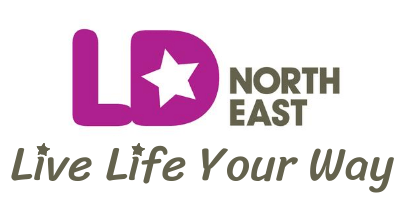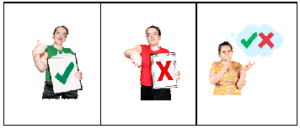LD:NorthEast have been working with Healthwatch North Tyneside around a new ‘Health Inequalities Strategy’ due to launch in the borough. It was clear from the start that the materials summarising the ‘Equally Well’ implementation plan would not be accessible to the people we supported. To address this issue, a meeting was set up to consider how to enable clients to engage in a way that was meaningful to them. Specific areas were selected, informed by current groups that were running e.g. Healthy Cooking and various exercise groups, and by topics that were felt to be of interest and relevance to people we support.
Strategy’ due to launch in the borough. It was clear from the start that the materials summarising the ‘Equally Well’ implementation plan would not be accessible to the people we supported. To address this issue, a meeting was set up to consider how to enable clients to engage in a way that was meaningful to them. Specific areas were selected, informed by current groups that were running e.g. Healthy Cooking and various exercise groups, and by topics that were felt to be of interest and relevance to people we support.
Members of our Northern Voices group were offered the opportunity to become peer researchers. They received training our Development Manager, Danielle, to interview their peers at group activities and when visiting our community hub.
Training session one included role play and listening activities to practice responding to a flow of conversation and to adjust questioning accordingly. A member of Healthwatch staff joined the second session, where simple questions were created for each topic. Layered questioning was devised that would allow those with the greatest communication and understanding difficulties to be able to participate using Yes/ No/ Not sure images.
Peer researchers used their existing relationships with others to support their involvement in the  consultation process, and were able to judge when to omit questions requiring a more complex response.
consultation process, and were able to judge when to omit questions requiring a more complex response.
This approach proved very successful and allowed people with learning disabilities and/or autism to share their experiences and concerns, providing many valuable and insightful responses.
Danielle reflected on our work with Healthwatch and the success of the peer researchers-
‘We have thoroughly enjoyed taking part in this consultation with Healthwatch. Its vital that the voices of people with learning disabilities and autism are heard in important strategies that will affect their lives. However, it is very difficult to make sure consulting with people with communication barriers is meaningful and insightful. Working with Healthwatch to ensure we had the time to train peer researchers and develop Easy Read questions over a series of weeks helped us to design a process that ensured people’s views were able to contribute to this valuable research.”

